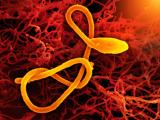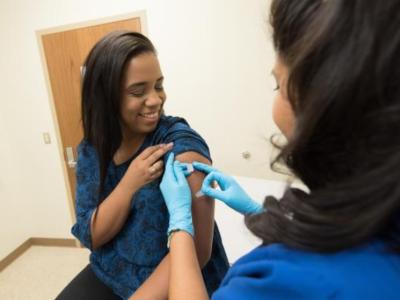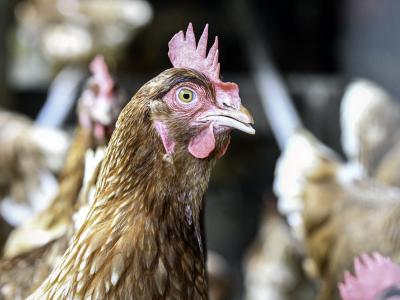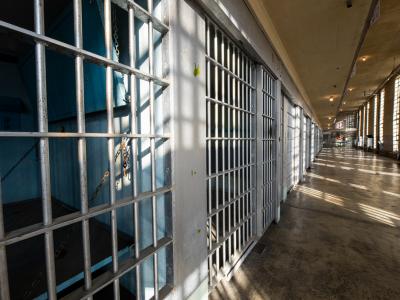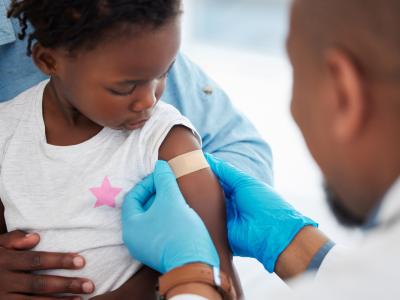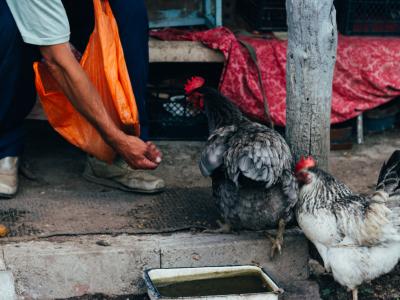Four Ebola infections were confirmed today in Conakry, capital of Guinea, as the number of suspected and confirmed infections in the country climbed from 86 to 103, with at least four more deaths, according to media and official reports.
The outbreak developments have also triggered more response actions inside and outside the West African country.
Guinea's health minister, Remy Lamah, said today that the cases appear to be linked to a funeral of an old man in the central part of the country who died after having hemorrhagic fever symptoms, according to a report from Reuters.
Fifth Conakry case suspected
The World Health Organization (WHO) Regional Office for Africa said in a statement today that the health ministry had notified it of the four lab-confirmed cases in Conakry. It also said a fifth suspected case-patient from the city has died without lab confirmation.
Urgent investigations are under way to identify the source and routes of the infections detected in the capital, the patients' travel histories, and information needed for contact tracing, the WHO said.
According to the Reuters report, four of the old man's brothers showed similar symptoms upon their return to Conakry after attending the funeral in the central town of Dabola. Lamah told Reuters the men were tested upon their return and were placed in an isolation ward in a hospital.
The Ebola virus spreads through secretions, and some past outbreaks in Africa have been fueled by funeral attendees handling the bodies of dead victims during rituals without adequate protection. The WHO has said that people who died from Ebola should be promptly and safety buried with no unprotected touching.
Earlier this week news accounts said suspected Ebola cases had surfaced in Conakry, but health officials said samples from two of three suspected cases were negative and that samples weren't available for the third patient. It's not clear if the men who attended the funeral are the same ones mentioned in the news reports.
Conakry is on the opposite side of Guinea from the forested districts in the southeast where the other suspected and confirmed cases have been reported.
Ten more suspected cases have been reported in Guekedou and Macenta, two southeastern districts that are in the outbreak's hot spot.
So far all age-groups have been affected but most of the patients' ages range from 15 to 59 years.
The WHO warned that outbreak developments are rapidly changing and that the numbers of reported cases and deaths are preliminary and subject to change, based on enhanced surveillance and lab testing.
Ban on bat soup
In other developments, Guinea has banned eating bat soup as an additional step to help curb the spread of the Ebola virus, the International Business Times (IBT) reported today.
Fruit bats are widely eaten in Guinea, especially in a spicy soup. The government's move to take it off menus is related to its belief that bats are the source of the virus.
Fruit bats are thought to be one of the reservoirs of the Ebola virus. Human outbreaks can occur when people eator handle infected animals, such as chimpanzees, gorillas, or bats.
Possible cases in Liberia, Sierra Leone
In Liberia, which borders Guinea, the health ministry yesterday issued a statement that said the suspected number of viral hemorrhagic fever cases remains at six, four of them fatal. It said two cases and a death at a hospital in Zorzor didn't meet the case definition,.
The ministry said a National Public Health Emergency Task Force has been meeting and has developed a 3-month, $1.2 million plan to speed outbreak response actions. Also, it is urging the public to limit direct contact with the body fluids of infected or dead people, avoid direct contact with animals such as fruit bats or monkeys and apes, along with consumption of their meat, and take other hygiene measures.
The WHO, in its Twitter feed today, said Liberia and Sierra Leone have reported suspected cases and deaths consistent with Ebola infection in people who had traveled to Guinea before symptom onset.
US travel alert
In the United States, Guinea's Ebola outbreak prompted the Centers for Disease Control and Prevention (CDC) to issue a yellow travel alert, which urged visitors to take enhanced precautions.
It detailed the districts where confirmed and suspected cases have been reported and recommended that those traveling to those areas avoid contact with the blood and body fluids of infected people.
The CDC said the risk to most travelers is low, with healthcare workers, family, and friends of infected people at highest risk.
See also:
Mar 27 Reuters story
Mar 27 WHO statement
Mar 27 IBT story
Mar 26 Liberia health ministry statement
Mar 26 CDC travel alert





